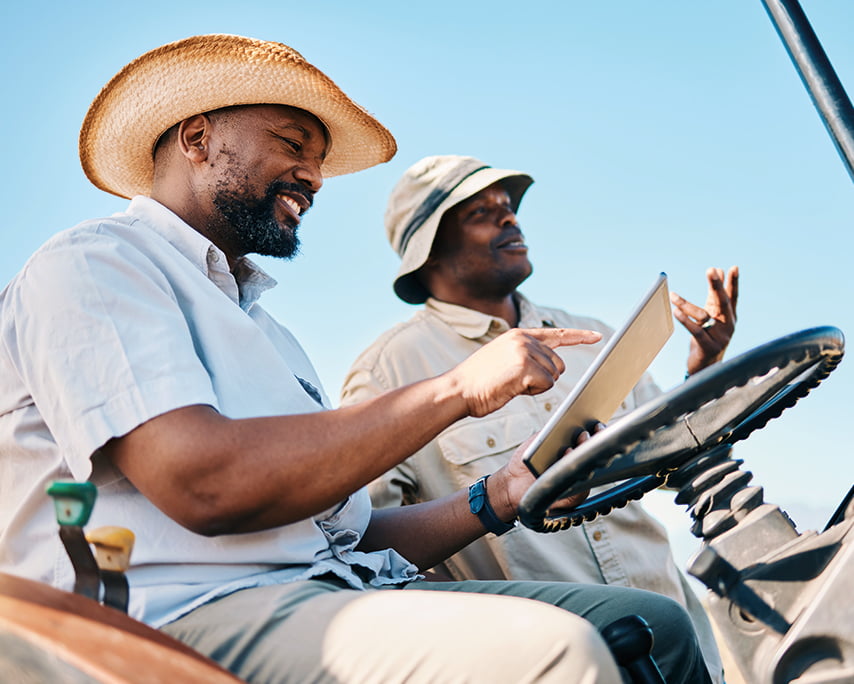World Telecommunication and Information Society Day
Information and knowledge are fundamental drivers of social change and development. They empower individuals and communities to make informed decisions, participate in governance processes and access opportunities for growth and development. Digital innovations can accelerate the passing of information and knowledge. However, as we commemorate World Telecommunication and Information Society Day, it is important to ensure digital innovations are inclusive and accessible to all and consider the dangers of misinformation perpetuated by rapid digital innovation.
Access to information is a fundamental human right, essential for ensuring transparency, accountability and good governance. When people have access to reliable information, they are better equipped to hold governments and institutions accountable for their actions and advocate for positive change in their communities. The knowledge acquired from this information becomes a powerful tool for promoting social change and development. When individuals have access to education and learning opportunities, they gain the skills and knowledge needed to improve their lives and contribute to the development of their communities. Education also helps break the cycle of poverty and inequality by empowering individuals to pursue economic opportunities and achieve their full potential.
Digital innovation, such as the internet, has revolutionised how information is accessed, shared and utilised, offering unprecedented opportunities to promote access to information. The internet has become a vast repository of knowledge, providing access to a wealth of information on virtually every topic imaginable. Through search engines and online databases, individuals can quickly and easily access information that was once difficult or impossible to obtain. This has democratised access to knowledge, empowering people worldwide to learn, communicate and collaborate in previously unimaginable ways. In the case of social media platforms, these have not just transformed the way information is disseminated, but also the way voices are amplified. They allow information to be shared rapidly and widely, reaching audiences far beyond traditional communication channels. Individuals and organisations can now raise awareness about important issues, mobilise support for causes and amplify marginalised voices.
Furthermore, digital innovation has transformed the way information is created and curated. User-generated content, such as blogs, podcasts and videos, has democratised the production of information, allowing anyone with an internet connection to share their knowledge and experiences with the world. This has enriched the global conversation and provided new perspectives on various topics.
However, these benefits are only available to a majority few who are able to afford and access these digital innovations. Additionally, the duty of care traditionally employed by news and information disseminators does not apply to everyone, even when it should. The lack of proper gatekeeping rules and regulations has perpetuated misinformation over the internet and social media.
Many people worldwide, particularly in developing countries, lack reliable internet access and the means to afford digital devices. This digital divide exacerbates existing inequalities, as those unable to access digital innovations miss out on opportunities for education, economic growth, and social connectivity.
Moreover, the traditional duty of care that news and information disseminators uphold does not always apply to digital platforms and social media. While traditional media outlets are often held accountable for the accuracy and fairness of their reporting, digital platforms are not subject to the same standards. Also, the lack of proper gatekeeping rules and regulations over these platforms partly contributes to the spread of misinformation. This lack of accountability has allowed misinformation to increase online, leading to serious consequences such as the spread of false medical information, political misinformation, and the incitement of violence.
One prerequisite for living in the information age is the ability to discern between credible and unreliable information. The need for media and information literacy has reached an all-time high in a world dominated by digital spaces and constant connectivity. As we navigate the information age, organisations, as stewards of information, must be active participants in this vital mission. By promoting credible content, collaborating with educators, and championing media literacy, they help pave the way for a future where individuals are better equipped to distinguish fact from fiction and navigate the digital landscape with confidence and discernment.



